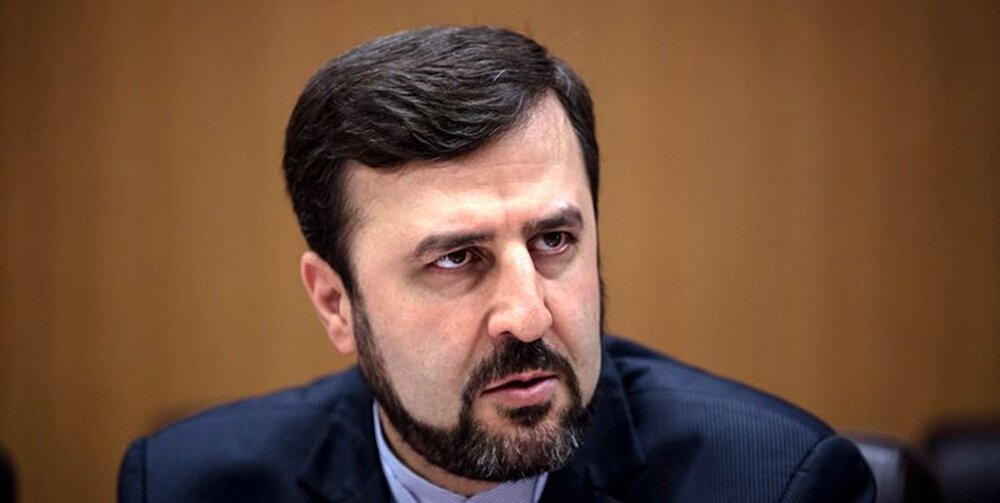Iran hits out at U.S., Britain over AUKUS deal
‘The U.S. and the UK have put the issues of non-proliferation and disarmament at risk’

TEHRAN - Iran’s permanent ambassador to Vienna-based international organizations has lashed out at the U.S. and UK for adopting nuclear double standards amid a decision to help Australia get its first nuclear-powered submarine under a deal known as AUKUS.
Speaking at the 65th regular session of the International Atomic Energy Agency (IAEA) on Wednesday, Kazem Gharibabadi criticized the West for falsely accusing Iran of pursuing non-civilian nuclear technology while inking a deal on building submarines fueled with weapons-grade uranium to another country.
“It is regrettable that the countries that scold Iran for enriching uranium up to 60 percent for humanitarian and peaceful purposes have now decided to sell to Australia military nuclear submarines that will run on uranium enriched to a level of more than 90 percent,” Press TV quoted Gharibabadi as saying.
The trio, now known by the acronym as AUKUS, will see Australia cancel a contract to buy diesel-electric French submarines and instead build nuclear-powered submarines for the first time, using technology provided by the U.S. A transfer of this scale is also the first of its kind.
Ambassador Gharibabadi says IAEA must have access to HEU in Australia at any reasonable time, and no excuse is acceptable
In his Wednesday remarks, Gharibabadi pointed to Iran’s conviction that every IAEA member state has the right to pursue its peaceful nuclear program, regardless of the level of enrichment, solely on the basis of its own needs and in accordance with the IAEA safeguards, but underlined the need for necessary safeguards arrangements in place to ensure civilian nature of their nuclear programs.
It is essential that Australia reach an agreement with the IAEA on necessary safeguards arrangements, he said, adding that the IAEA must have access to high-enriched nuclear material in Australia at any agreed and reasonable time, and no excuse is acceptable in this regard.
While stressing that the IAEA needs to regularly inform the Board of Governors of the developments surrounding the new partnership, the Iranian diplomat raised the alarm about putting the issue of non-proliferation and disarmament at risk.
“The U.S. and the UK have put the issues of non-proliferation and disarmament at risk. The U.S. and the UK must abandon double standards and hypocrisy, and refrain from jeopardizing their obligations under the NPT (Non-Proliferation Treaty), in particular Article 3, under the pretext of fabricated ‘strategic concerns’,” he said.
Experts say the U.S. decision to sell nuclear-powered submarines to Australia has put at risk longstanding but fragile global pacts to prevent the proliferation of dangerous nuclear technologies and could encourage other countries to freely sell their nuclear technology, and thus potentially expanding the number of countries who can build nuclear weapons.
The submarines used by the U.S. Navy and also the British use highly enriched uranium, or HEU, enriched to a level of 93 percent -- the same level of uranium concentration necessary for a powerful nuclear weapon.
Only six countries -- the U.S., Britain, France, China, India and Russia -- have nuclear-powered submarines.
The latest deal will make Australia the seventh nation to acquire nuclear-powered submarines.
Leave a Comment